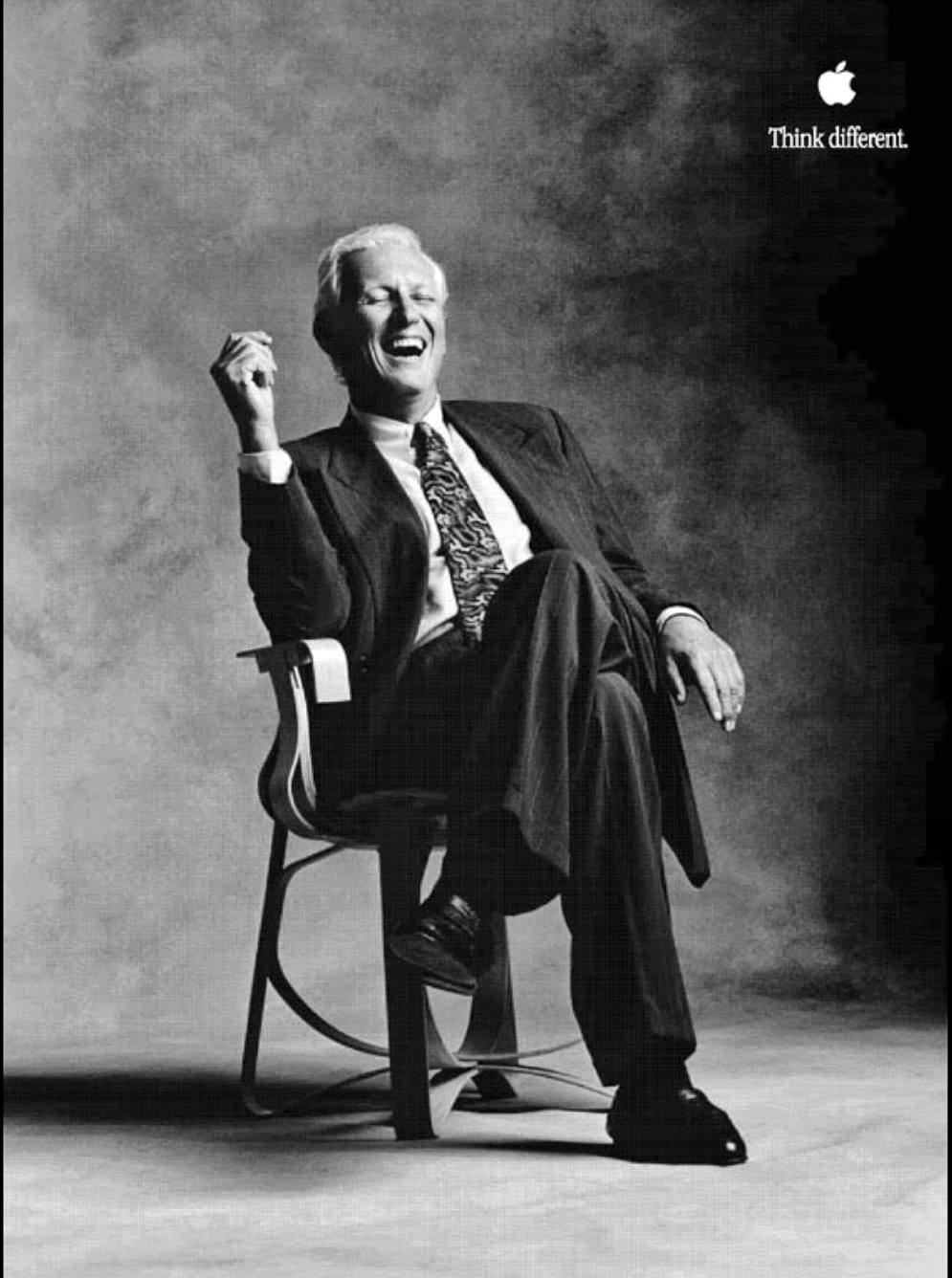Pioneering US adman Jay Chiat died on Tuesday at the age of 70, following a long battle with prostate cancer.
The New York Times once called him "a rebel with a cause, doggedly advocating that advertising, even for prosaic products, ought to be infused with elements of art, design, music and other popular culture."
Jay Chiat was born in the Bronx was the founder, together with Guy Day, of Los Angeles creative shop Chiat/Day. They started it together in 1968 and became one of the most influential advertising agencies of its time.
Jay Chiat and Chiat/Day created a host of memorable ads, including the 1984 Super Bowl commercial which introduced Apple's Macintosh computer. Chiat/Day – now TBWA/Chiat/Day – was named agency of the decade by Advertising Age in 1990. Chiat/Day created the Energizer bunny campaign which marched through other ads in ad breaks, and brought over "account planning" from Britain.
I'll leave you with Jay Chiat's wise words here as HOW TO AVOID DOING BAD ADVERTISING
- Realize that your agency cannot work for everyone.
- Recognize that there are no shortcuts. It's hard work to do great advertising.
- Hire only those you believe can do the job better than you can. It makes the work brighter, and it makes you work brighter.
- Fire quickly those who do not measure up. They contaminate the agency by making good people question their judgement.
- Recognize that all your people have creative capabilities and demand creativity from all departments.
- Make sure your account-management people are smart marketers. It takes brilliant marketing support to quiet client nervousness.
- Never stop at the first creative solution. Explore alternatives.
- Dig for the facts. Interview relentlessly. Your research must be unquestioned. Know your target better than you know yourself.
- Make sure a clear, concise, creative brief is written for every ad. Yes, every ad.
- Treat all advertising as equal. The trade is as important as the TV commercial. Perhaps more so.
- Do not permit "closet" accounts. If the work is not good enough to show to new business prospects, the account is not good enough to keep.
- Spend time training. Do not assume that people automatically understand what is expected of them.
- Promote from within when possible. But do not hesitate to seek expertise elsewhere if it is lacking at the agency.
- Treat everyone with the same level of dignity you expect yourself.
- Have no expectations. You have the privilege of working on an account for as long as the client allows you to.
- Perhaps most important, try to relax and have some fun.

